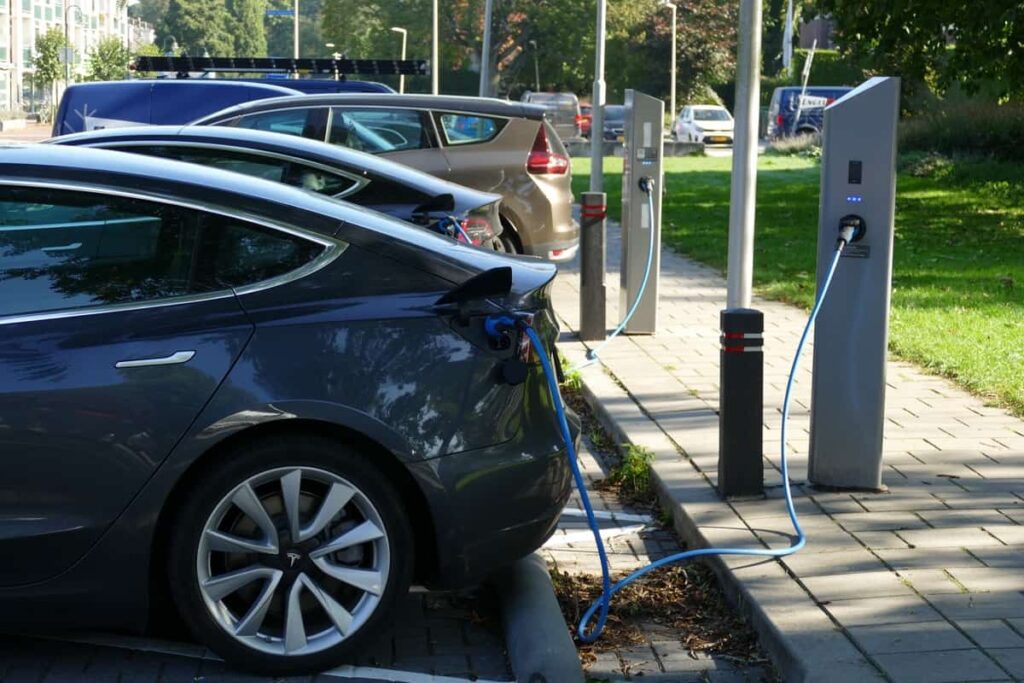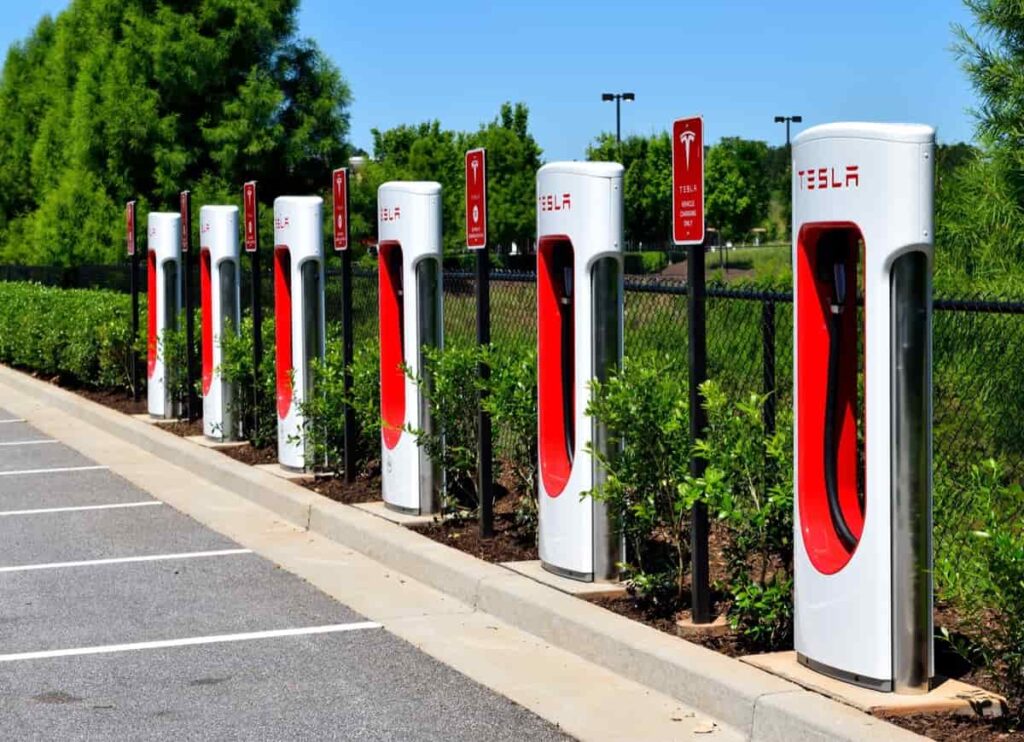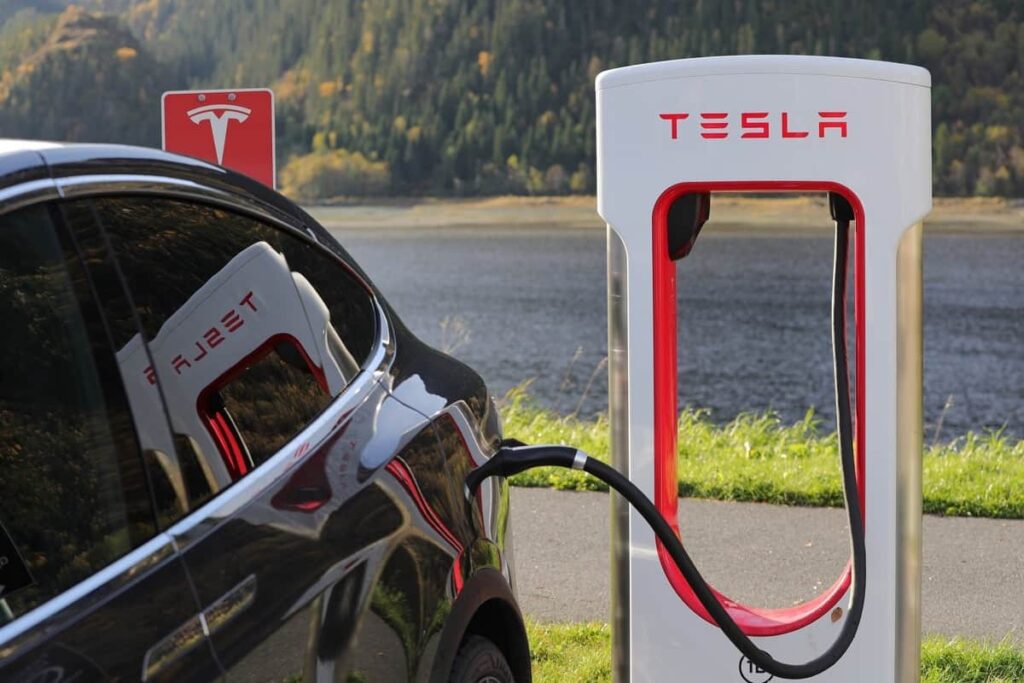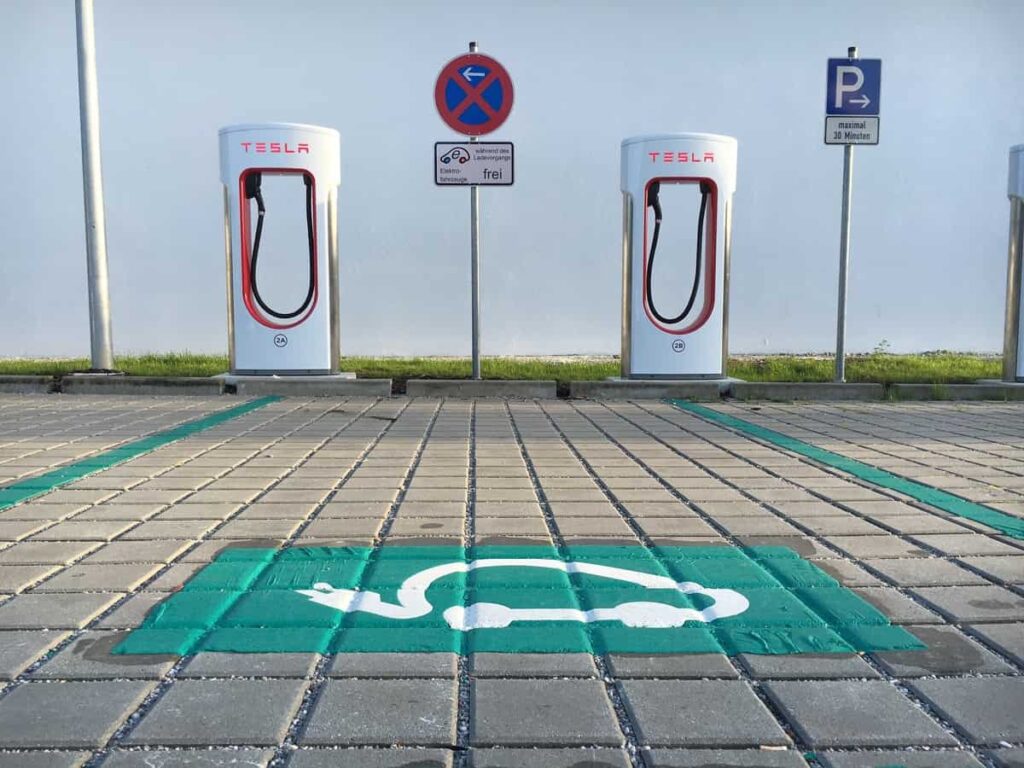The EV charging station business in Canada is highly profitable. With electric vehicles becoming more popular every day, EV charging stations are becoming an essential part of the transportation network in Canada. The ability to recharge an electric vehicle at an electrical facility is called charging infrastructure. An EV charging station is a public or private facility where electric vehicle owners can charge their vehicles. Charging stations are usually located near highways or urban areas and may offer different charging services.

How to open an EV charging station in Canada
Best locations for an EV charging station in Canada
- EV charging stations should be located near where people live and work to make them as convenient as possible. Charging stations need to be connected to an electrical grid to function. Therefore, locations with reliable and affordable access to power are ideal.
- Local zoning regulations may dictate where EV charging stations can be located. It is important to be familiar with these regulations before selecting a site. The topography of a site can impact the feasibility of installing EV charging station infrastructure.
Scope of EV charging station business in Canada
Electric vehicle (EV) charging stations are becoming increasingly popular in Canada as the number of EV owners continues to grow. As a result, many businesses are now considering installing EV charging stations on their premises to attract and accommodate EV drivers. The Canadian government offers a variety of incentives for businesses that install EV charging stations, including tax breaks and grants. In addition, many private companies offer support and assistance with installing EV charging stations.
The scope of the EV charging station business in Canada is growing rapidly, and there is significant potential for businesses that can take advantage of this emerging market. The EV charging station business is profitable in certain metro regions of Canada with a stronghold of EVs. Also, the profit from an EV charging station depends on the time utilized for charging an EV.
The EV charging business is gaining traction because of the charging stations’ low capital and operational cost. They require less manpower and can be easily managed without much intervention. When considering an EV charging business model, it’s important to understand which models will be most effective for the type of visiting driver, the type of location/business where the charging stations will be installed, and the typical costs incurred.
In case you missed it: How to Start a Car Wash Business in Canada: Business Plan, Cost, Profit, License, and Requirements

EV charging is provided free to grow market share by attracting and retaining customers, with the costs offset by the increased revenue gained through existing business activities. As a result, setting up a charging business can be one of the most profitable in current times, with the minimum requirement in terms of business experience, capital, time, and quick return on investment.
Building EV infrastructure in Canada
EV charging station provider also facilitates cloud-based app connectivity so EV owners can locate nearby charging stations for easy charging. It, in turn, benefits these charging station businesses, which can acquire the footfall of local EV consumers. Furthermore, it adds to building a widespread EV charging network.
Thus, it gives EV charging businesses a greater motive along with profitability. Adding EV charging stations to your business’s sustainability strategy is the smartest way. By installing charging stations, you show your workforce and customers that you care about the environment and are contributing to reducing carbon footprints.
EV charging station set-up cost in Canada
According to the National Resources Canada website, setting up an EV charging station in Canada can range from $1,000 to $80,000. The set-up cost will depend on factors such as the number of chargers, the type of charger, the location of the charging station, and whether or not installation and permits are required.
Electric vehicles are becoming increasingly popular in Canada. However, one of the challenges facing EV owners is finding a place to charge their vehicles. That’s why it’s essential to register electric vehicle charging stations in Canada. Doing so will make it easier for EV owners to find a place to charge their vehicles, and you’ll help support the growth of this clean and efficient transportation option.
Equipment required to start an EV charging station in Canada
- A supply of electricity
- An EV charger
- Cables and connectors
- Permits and approvals
- A charger
- An electrical panel and subpanel
- Approved wiring and cabling
- An adequate power supply
- Access to the grid
In case you missed it: How to Open a Gas Station in Canada: Business Plan, Cost, Profit, Requirements, and License

Business plan for an EV charging station in Canada
- Before moving forward with your project, it’s important to determine whether it is feasible. This involves considering your location, target market, competition, and start-up costs.
- Once you’ve determined that your project is feasible, it’s time to start developing a business plan. This should include detailed information on all aspects of your business, from your marketing strategy to your financial projections.
- It’s important to choose a spot that’s easily accessible for drivers and has enough space for them to park while they’re charging. You’ll also need to ensure that your charger is properly installed and meets all applicable safety standards.
- Before starting construction on your EV charging station, you must obtain the necessary permits and licenses from your local municipality.
- To finance the construction of your EV charging station, you will need to raise capital through either debt or equity financing. This step can be challenging, so be sure to put together a strong pitch for potential investors.
- Once you have the necessary financing, you can construct your EV charging station infrastructure.
- Develop a marketing plan to attract customers to your EV charging station.
- Establish partnerships with local businesses and organizations.
- Set up financing for your EV charging station.
- Apply for permits and licenses required to operate an EV charger in Canada. Promote your new EV charging station business.
How to start an EV charging station business in Canada?
Firstly, you’ll need to find a suitable location for your station. Once you’ve found a location, you’ll need to apply for a business license and ensure your business complies with all the necessary regulations. After you’ve obtained your business license, you’ll need to purchase or lease EV charging equipment. Once you have your equipment, you’ll need to install it at your chosen location and connect it to the electrical grid. Finally, you’ll need to promote your new EV charging station so that EV owners are aware of its existence and can start using it.
Requirements to start an EV charging stations business in Canada
Electric vehicle (EV) charging stations are becoming an increasingly popular business venture in Canada. With the number of electric vehicles increasing, there is a growing demand for EV charging stations. Initially, obtain a business license from your local municipality. Then, you can start looking for a suitable location for your EV charging station. Choosing a convenient location for EV owners with good visibility is important.
In case you missed it: How to Become a Real Estate Agent in Canada: Requirements, Exam, Cost, Commission, and Qualification

Next, you’ll need to purchase or lease EV charging equipment. There are many different EV chargers available on the market, so it’s important to research and choose the best option for your business. Once you have your equipment, you’ll need to install it according to local regulations. Finally, you’ll need to promote your EV charging station business.
You can do this by advertising in local media outlets and setting up signage at your location. You can also list your business on online directories and maps so EV owners can easily find your station when looking for a place to charge their vehicle. You will need to obtain liability insurance for your business. Once you have the required permits and licenses, you can begin marketing your EV charging station business.
License/Permit to start an EV charging stations business in Canada
The process for obtaining a license or permit varies depending on the province or territory where you plan to operate your business. In some provinces, you may need a business license from the local government. In others, you may need to apply for a permit from the provincial government. However, the requirements for starting an EV charging station business in Canada are relatively straightforward and can be easily completed with the help of a lawyer or other professional.
How many EV charging stations are in Canada?
There are approximately 5,000 electric vehicle charging stations in Canada.
Tips to be successful in the EV charging stations business in Canada
Do your research – Before starting your EV charging station business, it’s important to research and understand the market. This includes understanding the demand for EV charging stations in your area, the competition, and the regulations around installing and operating a charging station.
In case you missed it: How to Start a Tiffin Service Center in India: Business Plan, Setup Cost, Profit Margin, and Requirements

Develop a business plan – Once you’ve researched, it’s time to develop it. This should include a financial analysis to ensure that your business is viable and will make money. It should also identify your target market and what type of charging stations they prefer.
Choose the right location – One of the most important decisions you’ll make when starting an EV charging station business is choosing the right location. The location must have good visibility, easy access for customers, and be able to support the electrical infrastructure required for EV charging stations.
Obtain the necessary permits and licenses – To operate an EV charging station in Canada; you must obtain permits and licenses from the government.
Install high-quality equipment – To be successful in the EV charging station business, it’s important to install high-quality equipment that can handle the electrical needs of EVs. This includes chargers compatible with different EVs and batteries, wiring, and electrical panels that can support the increased demand for electricity. Investing in quality EV charging equipment is essential for providing a good customer experience and ensuring the reliable operation of your business. Be sure to research different brands and models before making a purchase decision.
Top 6 EV Charger Manufacturers in Canada
| nel X | SWTCH Energy |
| FLO | The Electric Circuit |
| Grizzl-E | Hypercharge |
Can a foreigner open an EV charging station in Canada?
Yes, a foreigner can open an EV charging station in Canada. The process is relatively simple, and there are many opportunities for foreigners to get involved in the EV charging industry in Canada. There are many opportunities for foreigners to get involved in the EV charging industry in Canada. With a bit of research and planning, it should be easy for anyone to start their EV charging business in Canada.
Different types of EV charging stations in Canada
- Level 1 EV chargers are the most basic and standard chargers, typically found in residential homes. Level 1 EV chargers use a standard 120-volt outlet and can charge an EV in 8-10 hours.
- Level 2 EV chargers are more powerful than Level 1 chargers, using a 240-volt outlet to charge an EV in 4-6 hours. Level 2 chargers are often found in public spaces like parking garages and workplaces.
- Level 3 stations have the highest power and can charge an EV quickly. They are mostly found at highway rest stops and some public parking spaces.
- DC fast chargers are the quickest EV charger, able to charge an EV in just 30 minutes to an hour. However, DC fast chargers require special equipment and infrastructure, making them less common than EV chargers.
In case you missed it: How to Start a Small Hotel Business in India: Business Plan, License, Permits, Setup Cost, Profit, and Requirements

Why is it important to register electric vehicle charging stations?
To protect consumers’ right to accurate and reliable measurement when being charged based on measurement, devices must be traceable to a person accountable for their use and operation. To allow traceability and accountability, device operators must register as contractors under the Electricity and Gas Inspection Act (EGIA).
The requirement to register EV charging stations enables us to track devices used for EV charging to ensure they meet minimum standards for measurement accuracy and reliability. This protects consumers from inaccurate measurements or unfair practices.
Conclusion
Today Electric charging stations are rare and can be a great and much more profitable business. Some charging stations are owned and operated by utility companies, while private businesses or individuals on others. EVs are becoming increasingly popular as they offer a more environmentally friendly option for transportation.
Opening an EV charging station in Canada can be a rewarding business venture. With the right research, planning, and commitment to customer service, you can create a successful EV charging station that is profitable and beneficial to owners of electric vehicles.
- Handicraft Making at Home: A Small Profitable Business Idea
- Pet-Tech Startups: Innovations for Animal Lovers
- Tech Repair Services: Meeting the Demand for Gadget Maintenance
- Maximizing Rewards: Smart Credit Card Habits for Cashback and Points
- Ultimate Guide to Making Money from Goat Milk Business
- How to Start an Agricultural Value Added Product Business
- Value-Added Business Ideas for Greenhouse: The Best Ways to Make Profits with Greenhouse Farming
- How to Make Profits with Organic Country Chicken: Best Strategies for Beginners
- 10 Value-added Business Ideas for Millets: Low-investment and Highly Profitable
- Why Cleaning Service Business Becoming More Profitable in Metro Cities in India
- 10 Best Businesses to Start in Ayodhya for Profits
- Top Drone Business Ideas in India: Unlocking Aerial Innovation & Opportunities
- Top 10 Service Businesses You Can Start with No Money
- Ultimate Guide to Starting a Home-Based Advertising Agency Business
- Starting a Nail Salon Near Your Location: Check List, Business Plan, Licensing, and Opening Instructions
- Construction Company Name Ideas: Guide to Create New Construction Company Names
- 8 Best Small Businesses to Start in Hyderabad: Low-Cost and Profitable
- 10 Best Small Businesses to Start in Massachusetts: Low-Cost and Profitable
- 10 Best Small Businesses to Start in Maryland: Low-Investment and Profitable
- 10 Best Small Businesses to Start in Delaware: Low-Investment and Profitable
- 10 Best Small Businesses to Start in Connecticut: Low-Investment and Profitable
- Top 10 Best Online Pet Business Ideas: Exploring Cats to Dogs
- 10 Best Small Businesses to Start in Colorado: Low-Investment and Profitable
- Top 10 Profitable Small Business Ideas in California: Low-Investment Tips
- From Little Rock to Fayetteville: Top 10 Profitable Small Business Ideas in Arkansas
- Top 10 Profitable Small Business Ideas in Alabama: Discover Opportunities in Alabama’s Growing Cities
- Top 10 Profitable Small Business Ideas in Arizona: Discover Opportunities in Arizona’s Growing Cities
- Golf Business Ideas: Exploring Golf Course Money Making Ideas
- Low Capital Profitable Small Farm Ideas: Farming Ideas to Make Money
- How to Write a Business Plan for Daycare: Exploring from Financial Projections to Risk Management
- Home Daycare License Requirements: Exploring State-wise In-home Daycare Requirements
- How Profitable is Day Care Business: How Much Does a Daycare Owner Make a Month or Year?
- How to Open a Daycare Center in Toronto, Canada: Business Plan, Licenses and Permits
- How to Start Meal Prep and Delivery Services: A Popular Business Idea
- How to Start a Milk Chilling Plant Business
- How to Start Coconut Shell Charcoal Business: Business Plan for Maximizing Profits